Got Hit by Helpful Content Update? Here Are 18 Things You MUST Improve on Your Site
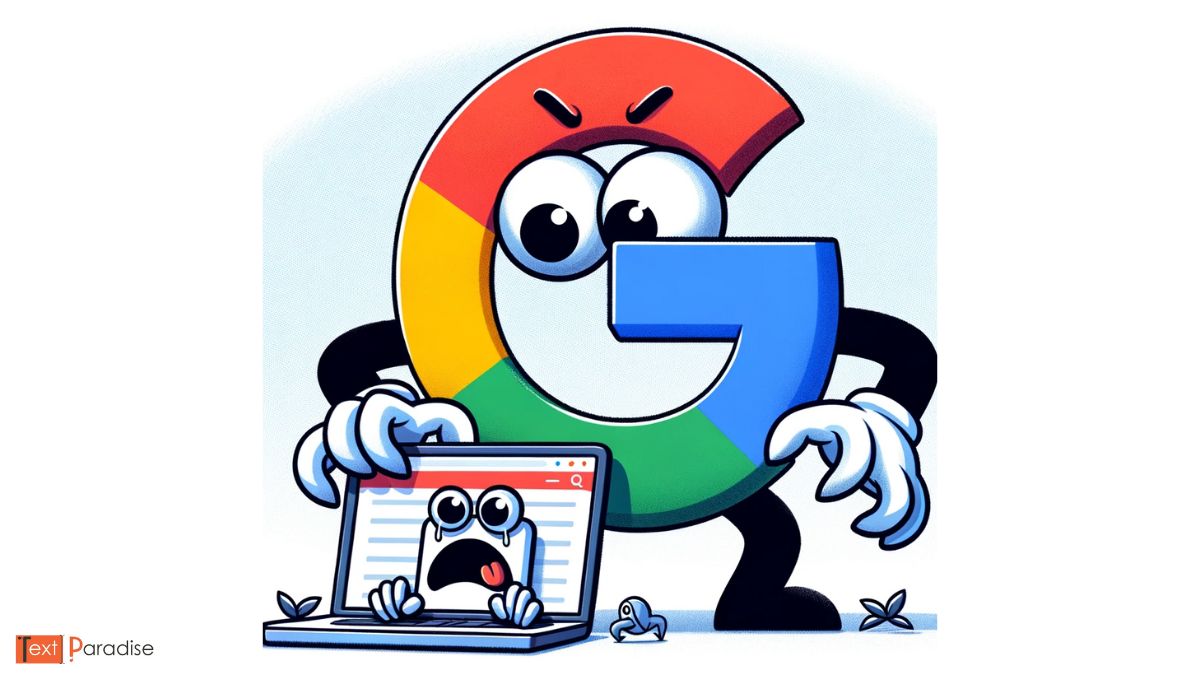
On September 14, Google announced the rolling out of the September 2023 Helpful Content Update. And the Update had an impact. It was huge.
SEO communities, Facebook groups, X – everything was on fire. Around the 17th (Sunday-Monday), site owners started reporting huge traffic losses. In an instant, SERP completely changed. Rankings were all over the place.
The biggest problem with this Update was that the content quality was not always the issue. Many sites with great content were obliterated. There is an infinite list of reasons why that could have happened, but we are not here to guess.
Based on sites that survived this Update and on Google’s own documentation about creating helpful content, we picked 18 crucial things that might separate sites that grew in rankings from sites that tanked.
We are not saying that if you implement these things, you will get your ranking back overnight. On the contrary, you won’t. But SEO is a long-term game. If you start implementing these things today (besides having great content), you are increasing your chances to get back on track (or grow even more if you weren’t hit) significantly!
Each of these 18 tips is a piece of a puzzle you need to connect to reap the rewards in the future! A new Google Update will come, and by doing these correctly, you are increasing your chances of winning!
Note: This is not just based on our guesses and empirical data (from our own and other high-authority sites); almost every tip we share here is backed up by Google saying that in their documentation.
Things to improve on your articles
1. Show expertise by having a link to the article’s author page/archive
As per Google’s guidelines on creating helpful, reliable, people-first content (and this part here), one of the first things you must have in your article’s meta is a link to the person who created the content. By having that, you are sending a super strong trust signal to Google.
Google’s algorithm wants to know who created the content and what expertise & experience that person has (I will tackle how to show expertise & experience a bit later).
EVERY major site has that. Here is just one good example from an Investopedia article:
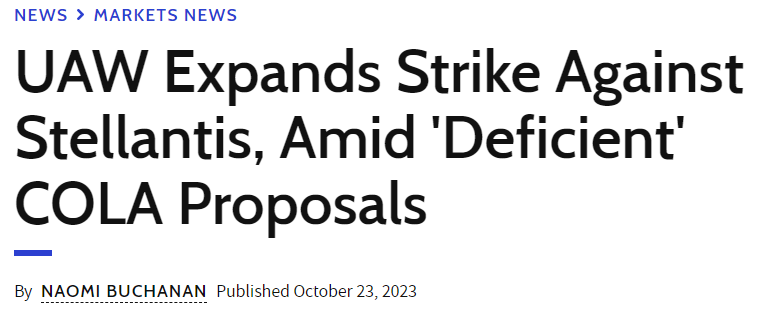
2. Published (and Updated) date

This one is a must. Every site has it. Having a date when the article was published is fundamental. Google also uses that date on SERP:


On top of having Published Date shown on articles (that is the one Google uses to show on SERP), you can also add Updated Date to your articles:

3. Comments section
After Google’s last Helpful Content Update, there is no chance you haven’t seen this graph posted everywhere:
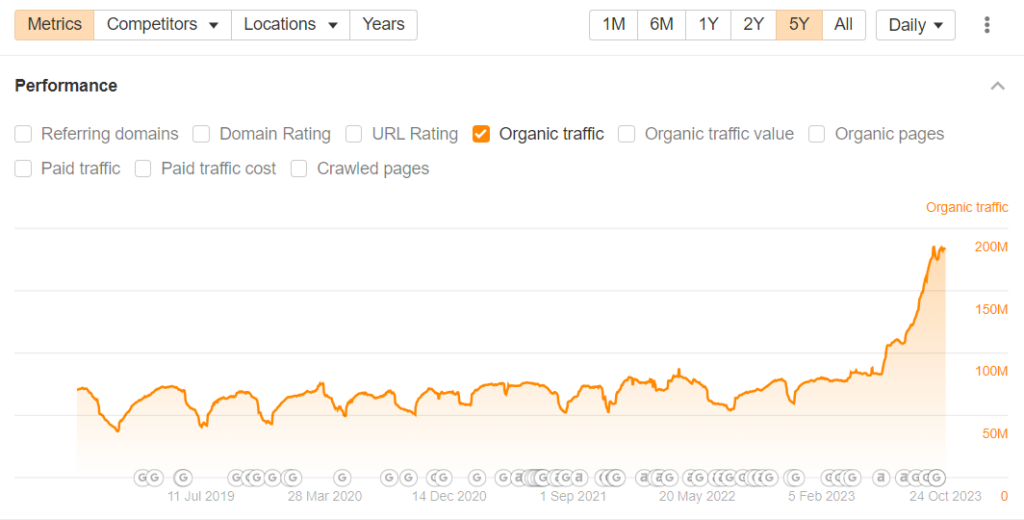
As per Ahrefs, Reddit’s organic traffic skyrocketed – it almost tripled overnight. And yes, Ahrefs’ numbers are not always reliable, but I think all of you can agree with me on this one. Reddit is ranking like crazy after HCU, and that is not an isolated case.
You can also see Quora, Stack Exchange, and basically any other legit forum out there ranking at the top of Search Results and overtaking your articles.
Why is that? Well, Google explains this as a way to “give people what they search for.” And people are increasingly adding “reddit” to the end of their queries.
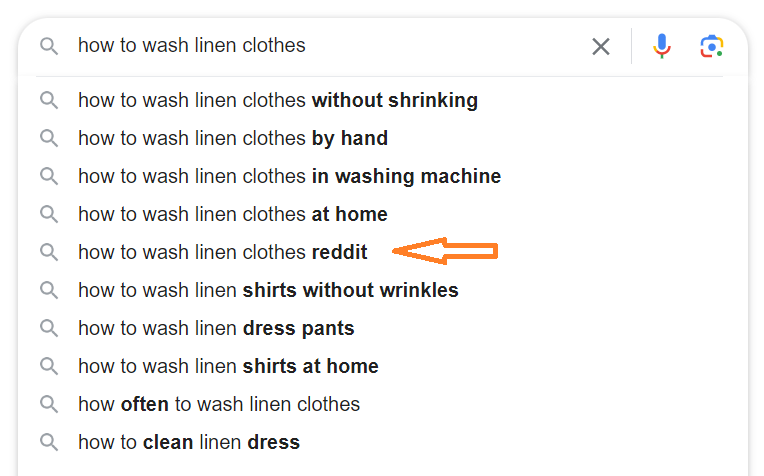
It seems that people don’t want just to get an answer from one person. Users want multiple ideas, suggestions, experiences, angles, and stories. And forums are just that. You can go on Reddit and see from five different people what they suggest you should visit on your trip to New York.
So, what can you do about that? It’s really simple, actually. You NEED to start creating a community from your site. And what better way to do it than to add a comments section to your articles where people can give feedback, share their thoughts, and feel like they are part of a community – everyone wants to feel that.
Adding a comment section to your articles is not just a great feature & user experience. I believe you are also sending a strong signal to Google that your site is not just about producing articles and monetizing them but also about creating a community for people – and it seems that Google wants that!
4. Social share icons

You have created a beautiful piece of content for your readers. And they like it. They think it’s helpful, and some might immediately think of a friend, colleague, or family member who might also be interested in reading this. So, they want to share your article with them.
Yes, they can copy the article’s URL, open another external app, and paste it, but why not just make it easy and have that option shown to them right where they want it (at the end or beginning of the article)?
Articles with social share icons featured are shared more. And if there is one thing Google likes, it is your article being shared all over social places, messages, emails, saved to bookmarks (link to Google saying that). That way, you will get those Direct (or Social in some cases) users, and Google loves that!
What is it saying to Google you have great content than users coming directly to your site? They don’t even want to check other guides on Google search – they have your site already saved and ready to read.
5. “Reviewed by” (an expert)

This one is super important! It is often misunderstood that the writer is the one who should be an expert on the topic. But that is not the case! As per Google guidelines, content should be either written or reviewed by an expert.
So, if you are not the expert in the field (or Google just doesn’t see you as one – we will talk about how Google recognizes authors later), have an expert review your content!
The important thing here is not just to have an expert review your content – you are doing that part for your readers. But you also need to say to Google: “Hey, I found a person who is an expert in the field this article is about, and he/she fact-checked the article.” And how do you do that?
Simple, next to “written by,” add “reviewed by,” and put a link to his author page/archive on your site. Note that you need to create the expert’s page/archive on your site and edit it as per E-E-A-T standards.
6. Sign of expertise & trust (like a link to Editorial Policy)
Again, as per Google’s own guidelines, they want you to show how the content is created. One super easy way to do so is to add a link to your editorial policy (the way you create your content) somewhere at the beginning of your content.
In your editorial policy (or content policy, or however you want to call it), you can write about your content creation (for example, how you review products), how you check for facts, proofread articles, your stance on AI & plagiarism, etc.
Healthline does this really well:

If you click on the button “Fact Checked,” it goes to their Editorial Policy page containing a ton of info on how they create their content. Super strong signal for Google!
ALSO CHECK 👇
Things to improve on your site
We’ve covered some crucial things to do on the article level. Now, let’s see what things you can improve on the site level.
7. Home page
Not many people give this one thought, but it is super important actually. And I believe that there is definitely some connection between having a good Home page and Google’s guidelines on “people-first content.”
For Home page, many site owners just have a default blog roll showing x latest articles. Does that give any info on who you are, what your site is about, your expertise, and what readers will get? Not so much.
Here are two bullet points from Google’s guide on “people-first content” that I believe directly correlate to things you need to have on your Home page:
- Do you have an existing or intended audience for your business or site that would find the content useful if they came directly to you?
- Does your site have a primary purpose or focus?
Based on this, what would a good Home page look like?
- When someone comes to your Home page, they instantly need to know what the site is about. You can do this with a featured sentence or featured articles.
- Who is behind the site & site’s main info & history?
- What is the site covering? You can put links to categories/different parts of your site (this also helps with indexing and link juice).
- Links to your socials & newsletter.
Today’s Homeowner is one good example.
These are just a few fundamentals. As every site is different, you can always add/change things you have on Home page, but try to cover things from above.
Note: if you are running a news site, having something closer to a blog roll-type Home page is probably a better solution.
8. About Us page
Along with having authors set up, About Us page is by far the most important thing you MUST have on your site. Google explicitly states they want you to have About Us page on your site.
And what is a better way to show who are the real people behind the site, their experience & expertise? None. About Us page offers so many opportunities it is crazy. You can talk about the site’s history, how it was created, its purpose, who are the folks behind the site, owners, editorial team, writers, what company is behind it, the site’s socials, etc.
I believe that having a good About Us page is the single most important thing when it comes to showing E-E-A-T (on top of authors), and I think everyone has their ears full of hearing about displaying E-E-A-T from Google.
There is no single way to approach creating an About Us page; just try to cover everything about your site, company, and people working on it. You can find many examples online, but let’s use The Verge as an example. They covered everything from the site’s history, team, and company info.
9. Contact page
When it comes to pages on your site, right after Home and About Us, comes Contact page. One big mistake people make with Contact page is they just put one email address, usually [email protected], and forward all inquiries there. Don’t do that.
Use this opportunity to add some legitimacy to your site. For different inquiries, use different email addresses. Some examples:
- for advertising: [email protected]
- for hiring: [email protected]
- for PR stuff: [email protected]
- content feedback: [email protected]
Be creative here and show that you are a real business! It doesn’t cost you anything extra to have multiple emails; just use aliases and forward everything to your main email.
10. Different policy pages like Privacy, Editorial, Funding, …

After creating Home, About Us, and Contact page, why stop there? Create more pages and further send that Trust (E-E-A-T) signal to Google. Opportunities here are endless, and they depend on what your site is about. Here are some examples:
- Privacy policy
- Cookie policy
- Funding policy
- Editorial policy
- AI policy
- Terms & conditions
- Accessibility
- Reviews policy
- …
When you make these, it’s super important to link them on your site (preferably in the footer). When Google Bot comes crawling your site, it must be able to see those!
11. Menu with clear structure and navigation
Speaking of menus, you need to have them done right. Menus are important not only for users but for Google as well. Menus are used so that:
- a) users can navigate to different parts of your site and easily find what they search for,
- b) Google Crawler finds your content and crawls it (and indexes) while using as few resources as possible.
Having a menu with a clear structure helps a lot. Think about your site’s structure (categories, tags, important pages) and make a useful menu for both the users and Google. On both mobile and desktop!
12. Newsletter



Every major site has a newsletter. After all, on Google Search, Google Discover, Facebook, X, Pinterest, etc., you depend on an algorithm run by AI. Your traffic from a source can tank overnight. But that is not the case with your emailing list. You “own” that traffic.
On top of that, a newsletter is probably the best way to build relationships with your readers and “evolve” your site into an actual brand. And Google LOVES brands that have loyal readers and people who return to your site.
The last thing about the newsletter is that almost no one knows about – First-party cookies! We all know that Google is looking to remove third-party cookies in the second half of 2024. And that will impact your ads earnings significantly!
But what can you do about that? Start collecting first-party data! How? Simple! Every time a person leaves their email (for example, newsletter sign-up form) on your site, your ad provider will collect that data and store it so they can share it with advertisers once third-party data is removed. Advertisers will love that, and you will get bigger RPMs from ads!
13. Link to social profiles & Google News
Along Reddit and Quora (forums in general), one type of site that “survived” HCU is super high authority sites. Google likes to call those “authoritative sites they trust.” And how do we know Google likes a site? It ranks it well. 🙂
Joke aside, when Google finds a site they trust, they give it a Knowledge Panel. For example:
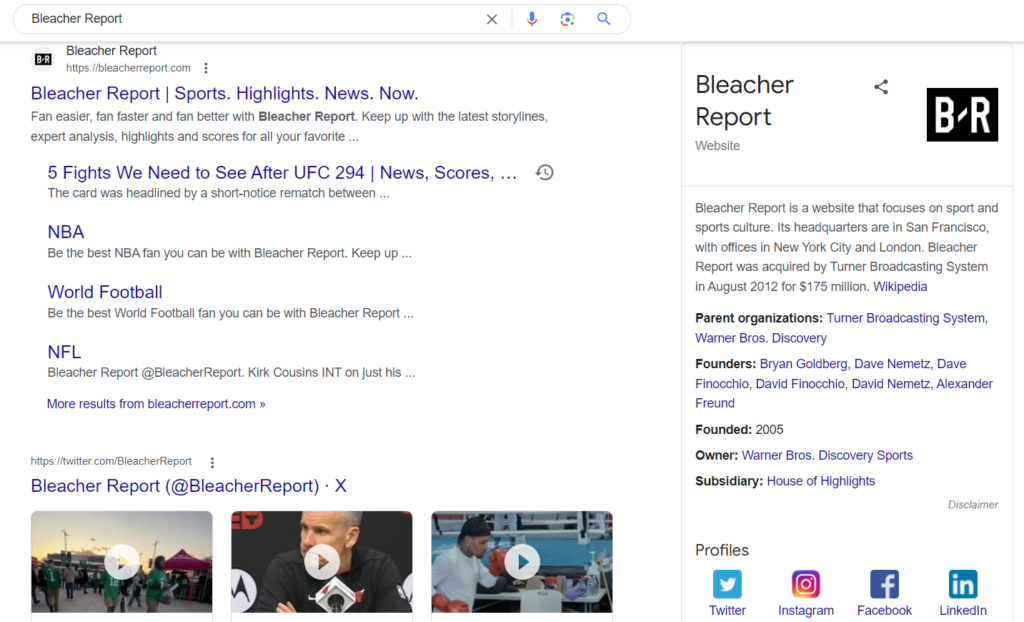
Why (how) does Google know that this site is a legit business (brand)? Google managed to connect the dots around the web about this site. Based on Wiki info, socials, and tons of other mentions around the web, Google’s algorithm recognized that Bleacher Report is not just another www.site.com that publishes articles but a legit business. And we want that for you.
Now, on top of getting mentions and a Wiki page (which is super hard), one thing you can do with ease is help Google “connect dots” about different places (socials) you are active.
And how do you do that? Simple. On your site, make visible links to all your social profiles (Facebook, X, Instagram, YouTube, LinkedIn, etc.) to make Google easier to understand different parts of your brand.
On top of linking to your social accounts, be sure to also link to your Google News publisher account – another easy win!
14. Schema markup (structured data)
People add structured data to their site to trigger rich results on SERP – recipes, reviews, FAQs (historically), etc. But, adding Schema to your site has one more benefit: giving Google more information about what is something (article, author, site, etc.) about and how it’s connected to other places on the internet.
There are three important types of Schema you must have on your site:
- Article Schema – by having this type of Schema properly enabled on all your articles, you are giving clear signs to Google on the article’s title, published date, updated date, who wrote the article, what’s the article about, etc. This won’t help that much on SERP, but it is a game-changer for Google Discover and Google News.
- Person Schema – we want this on EVERY author page/archive you have. Person Schema has incredible attributes you can add to your authors, like first and last name, position in the company, experience, language, social profiles, other sites where the author wrote, email, contact, etc. By having a Person Schema set up correctly, you significantly increase your chances of having a Knowledge Panel for your authors. Remember what we talked about Knowledge Panels above? YOU WANT THOSE!
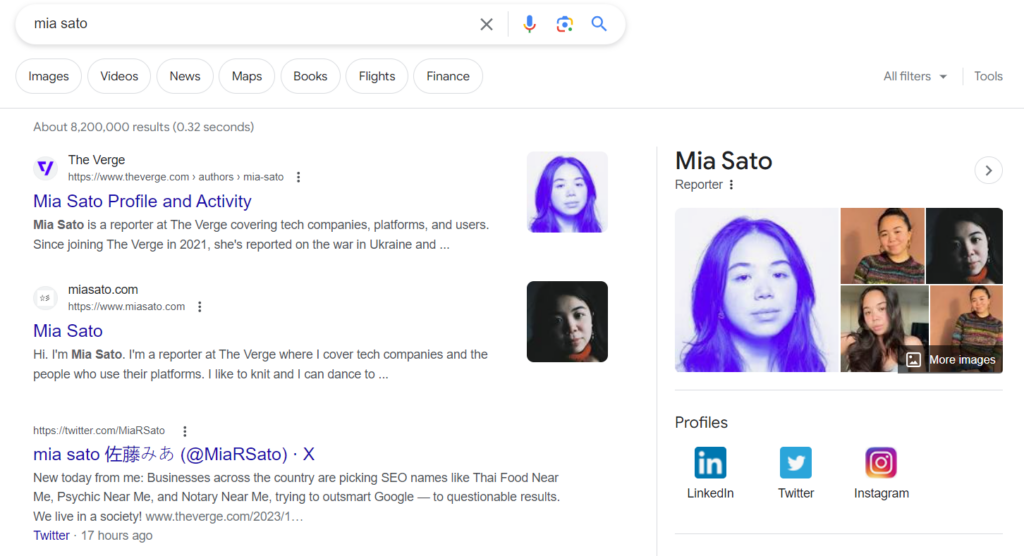
- Organisation Schema – this one (or some modification of Organisation) is used for your site in general. You can add attributes like what the site is about, when it was founded, who are the founders and owners, and, of course, link your social profiles. All of these help in obtaining a Knowledge Panel for your site – and as already discussed, you want that!
15. Archives pagination & indexing set up
Tags, categories, and author archives on your site contain all the articles under a specific tag/category/author. And that’s it, nothing more (maybe a brief description). Google might recognize this as thin content. And, if you have tons of these URLs, does Google think that you have a ton of pages with only article titles and nothing more?
It’s hard to say, but you should definitely take a look at these. Increasing the number of articles on one archive page and thus reducing the total number of URLs for a specific archive might help with that. You will simply have fewer URLs with potential “thin content.”
On top of this, it is also important to set up pagination properly so Google’s bot can crawl your site and find all articles. By far, the easiest and most economical way for Google’s crawler to check your article is through archives (be it tags, categories, or authors), so have your pagination set up properly!
ALSO CHECK 👇
Must-have off-page E-E-A-T signals
We’ve talked about the importance of establishing Trust (E-E-A-T) signals for your site and authors (and obtaining Knowledge Panels in the process) and what to do on your site regarding those. In this section, we will show you what you should do off-page for these.
16. Social proof (outside your site) for authors
Throughout this whole article, we’ve talked about how important it is that Google recognizes you as a real person with experience and expertise in a field and not just some random author on a site. And what better way to do that than to have legit profiles on high-authority social sites?
For each of your authors, be sure to have at least:
- Facebook profile
- X profile
- LinkedIn profile
- Muckrack profile
Those are the fundamentals. On top of that, stuff like Instagram, TikTok, Pinterest, Crunchbase, maybe IMDb profile, Medium profile, etc., will certainly help a lot.
Also, you want your authors to have profiles on other high-authority sites. Why? If Google recognizes a certain site as an authority, and you have a writer on your site who also writes there, that is certainly a great sign for Google: “Hey, if writer X writes for [high authority site], and he/she also writes for [your site], then [your site] might be worth giving a look at.”
There are two ways you can play this game. You can either try to get your writers on other high-authority sites or get already established authors from high-authority sites to write on your sites.
Of course, after you do all this, don’t forget to connect all the dots with on-page links and structured data. We want that Knowledge Panel. 🙂
17. Social proof (outside your site) for your site
Everything we said about authors stands for your site as well. On top of getting mentions from high-authority sites (which is a long-term task), you must have (social) profiles for your sites:
- Facebook, X, LinkedIn, Crunchbase, Muckrack, etc.
Of course, after you create everything, don’t forget to do the schema part.
18. Company page
Going back to the Trust signal. Every legitimate site that makes money should be a registered business. And every business should have a website. So be sure to create your company page with company info, contact, what it’s about, and links to your niche sites.
On top of that, Google makes it super easy for us to showcase your business via Google Business Profile. So do that as well!
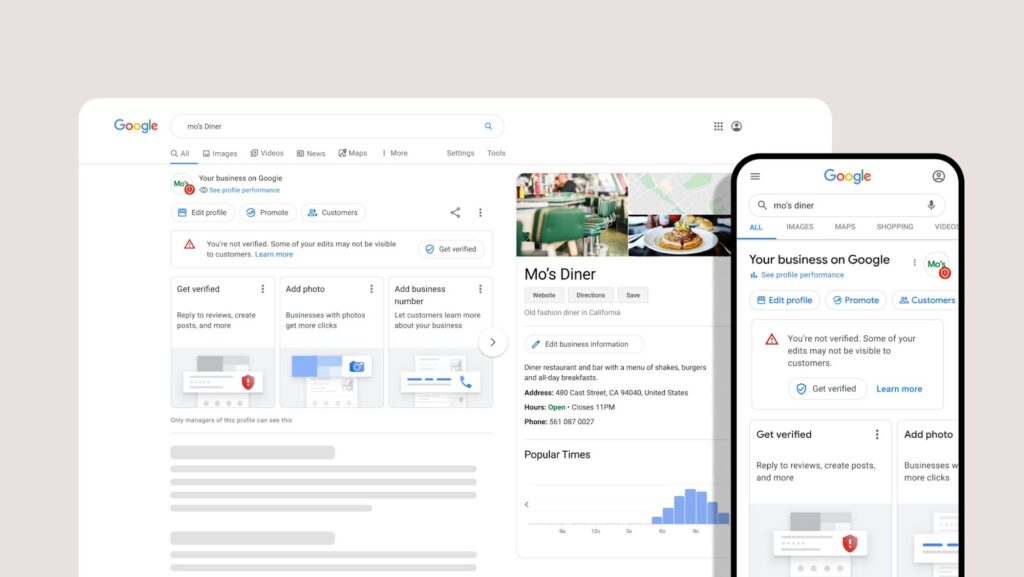
After you set up your Company page, be sure to link to it and give info about it from your site as well!
ALSO CHECK 👇
What next? Take action. Improve your site!
Implementing all of these things (and implementing them correctly! – if you are unsure, you can always reach out to us) should be your priority. After you do that and you set up good foundations, you should just keep publishing great content. The more you do, the higher your chances of success!

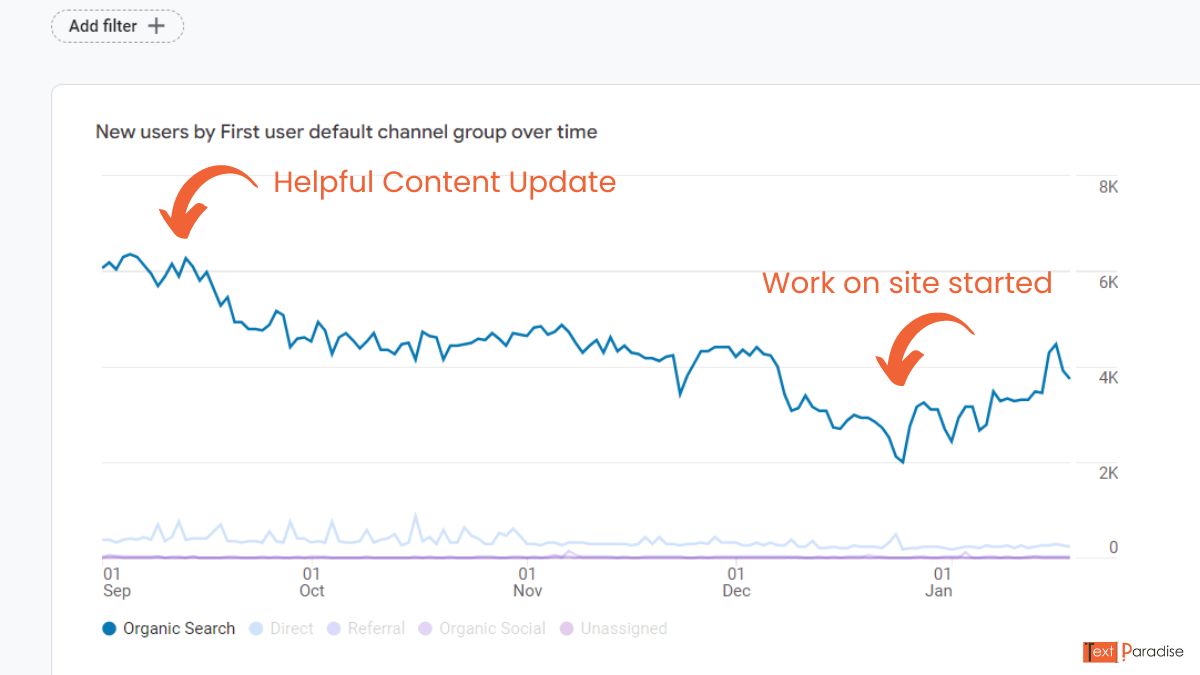
![[Case Study] How We Generated $99k/Month in Ad Income in Under 3 Years [Case Study] How We Generated $99kMonth in Ad Income in Under 3 Years](https://thetextparadise.com/wp-content/uploads/2023/01/Case-Study-How-We-Generated-99kMonth-in-Ad-Income-in-Under-3-Years.jpg)
![[CASE STUDY] 21 Months Journey to $25k/Month Only from Ads (Without Link Building) [CASE STUDY] 21 Months Journey to $25k/Month Only from Ads (Without Link Building)](https://thetextparadise.com/wp-content/uploads/2021/07/10k-in-18-months-1.jpg)
